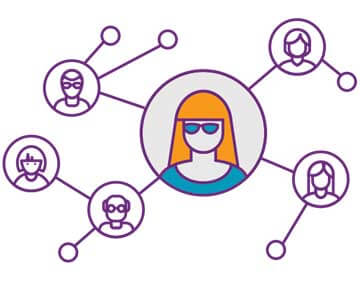
We have found that employee surveys are not, but should be, designed to help identify how, and how effectively, the enterprise culture is helping shape employee behavior and the delivery of customer value, with employee ambassadorship as an optimal state. The questions in these ‘new age’ employee surveys address such key areas as:
– Organizational stakeholder-centric leadership.
– Cultural readiness for stakeholder-centricity
– Cultural readiness for employee ambassadorship
– Staffing decisions (hiring, training, reward/recognition, advancement,etc.) embedded in the employee experience
– Employee life cycle
– Emotional drivers of employee behavior
– Linkages between employee behavior and customer behavior
In a recent Forbes article by Christine Comaford, she reported on the results of a 2017 Temkin Group CX Management Survey of 180 organizations with $500 million in annual revenues. Though only 8% of respondents felt their employer delivered the best CX in their business sector, 55% set this as a goal within the next three years. How are they going to reach that objective? One of the most essential ways is by emphasizing the employee experience and how it directly and indirectly links to the customer experience. Among other challenges, this will require different approaches to employee surveys.
Employee research into commitment to the customer experience brings in several components which build on, but differ markedly, from traditional, or standard, employee satisfaction and engagement techniques. Here is some of our thinking on how to do this:
• For one difference, the attributes studies should actively include a significant proportion that are customer focus-related (perhaps 40% to 50% of them)
• Next, incorporate multiple overall ‘value indicators’, which examine personal commitment to the organization, degree of positive and negative word of mouth on behalf of the company’s products and services, and strength of belief in the value of these products and services to customers.
• Develop an emotional profile, i.e. how employees feel about the work they do for the company, and identify what employees desire most in their jobs
• Evaluate each of the attributes based on
a) how employees rate them, i.e. agree/disagree,
b) how much the employees want them, and c) their prioritized value to the organization.
Note that, as long as individual anonymity is assured and the survey instrument is professionally crafted for relevancy and conciseness, employee research can be conducted via an array of techniques: paper and pencil, online (through Intranet and employee communities, etc.
Internally, the organization should first do everything possible to prepare employees to provide honest and open feedback, assuring them that their insights will be the basis for real enterprise initiatives. Given that these surveys can have several potential designs (company-wide culture, initiative progress checks, in-depth to measure things like communication or process, etc.), any employee study needs to go beyond the limits of employee satisfaction (overall positivity level) and engagement (fit, alignment, and productivity). Importantly, enterprise leadership needs to actively support the process; and everything should be done to generate high response rates (a low response rate speaks volumes about the culture).
Once the survey process has been completed, employees should be thanked for their participation; and a firm schedule for feedback should be established and communicated. In analyzing results, key themes, i.e. story lines impacting the organization and employee experience, should be identified. For example, in one of our employee studies, tenure was found to be a major indicator of both positive and negative perceptions. Then, take action, focusing on strategic and tactical goals, milestones, and responsibilities. And, as with customer behavior research, rinse and repeat.
Hi! I am a robot. I just upvoted you! I found similar content that readers might be interested in:
http://customerthink.com/how-to-design-and-act-on-real-world-employee-surveys/